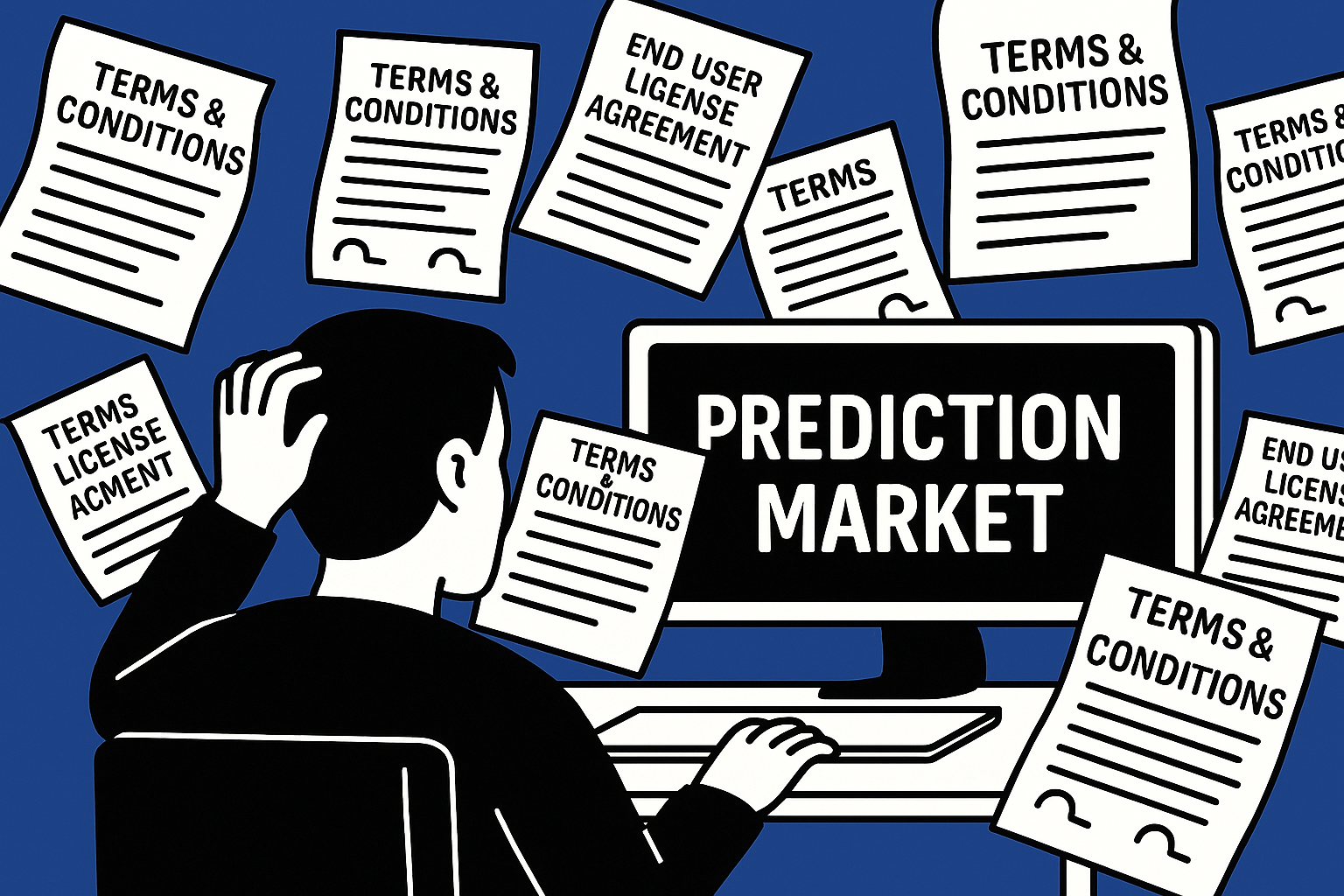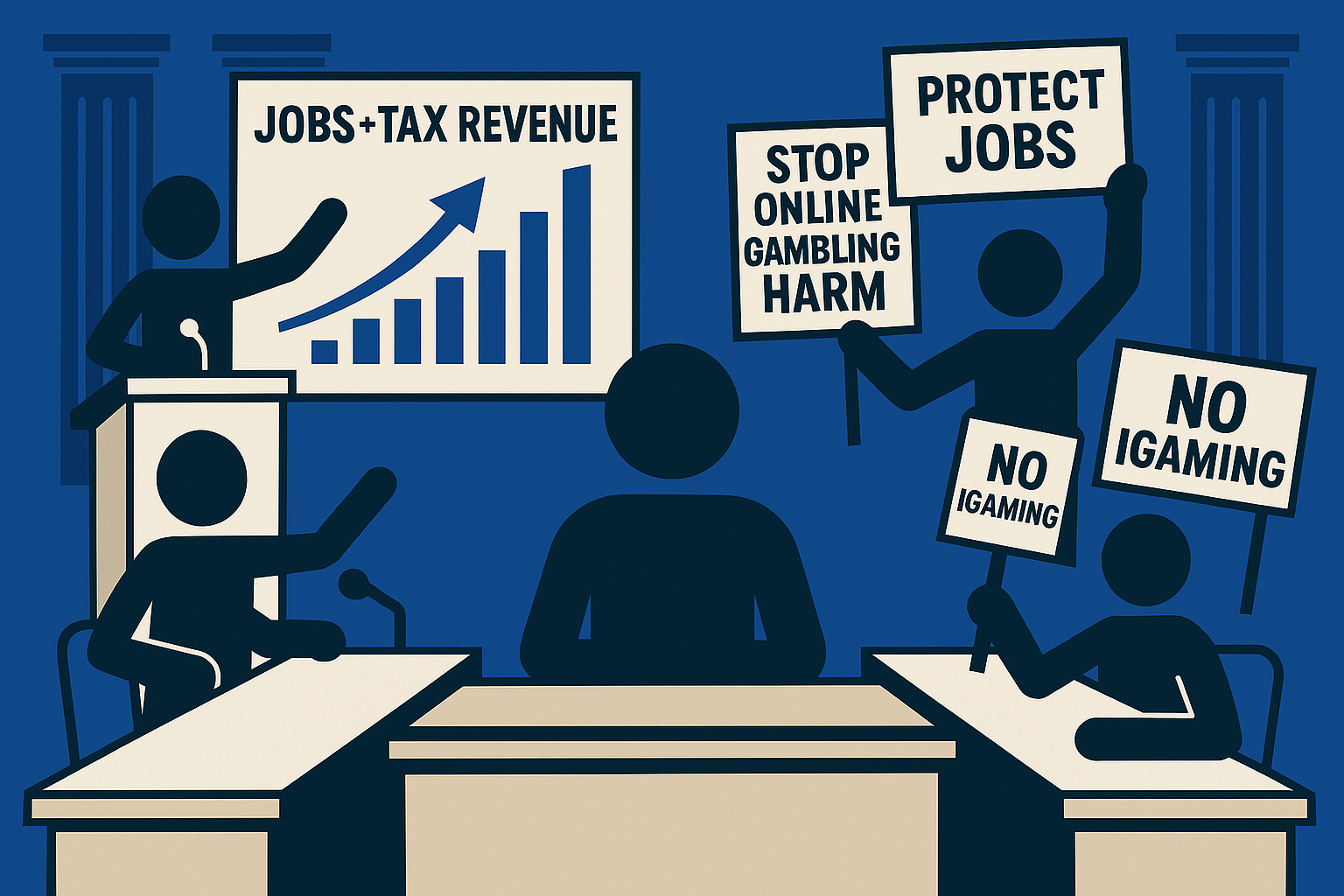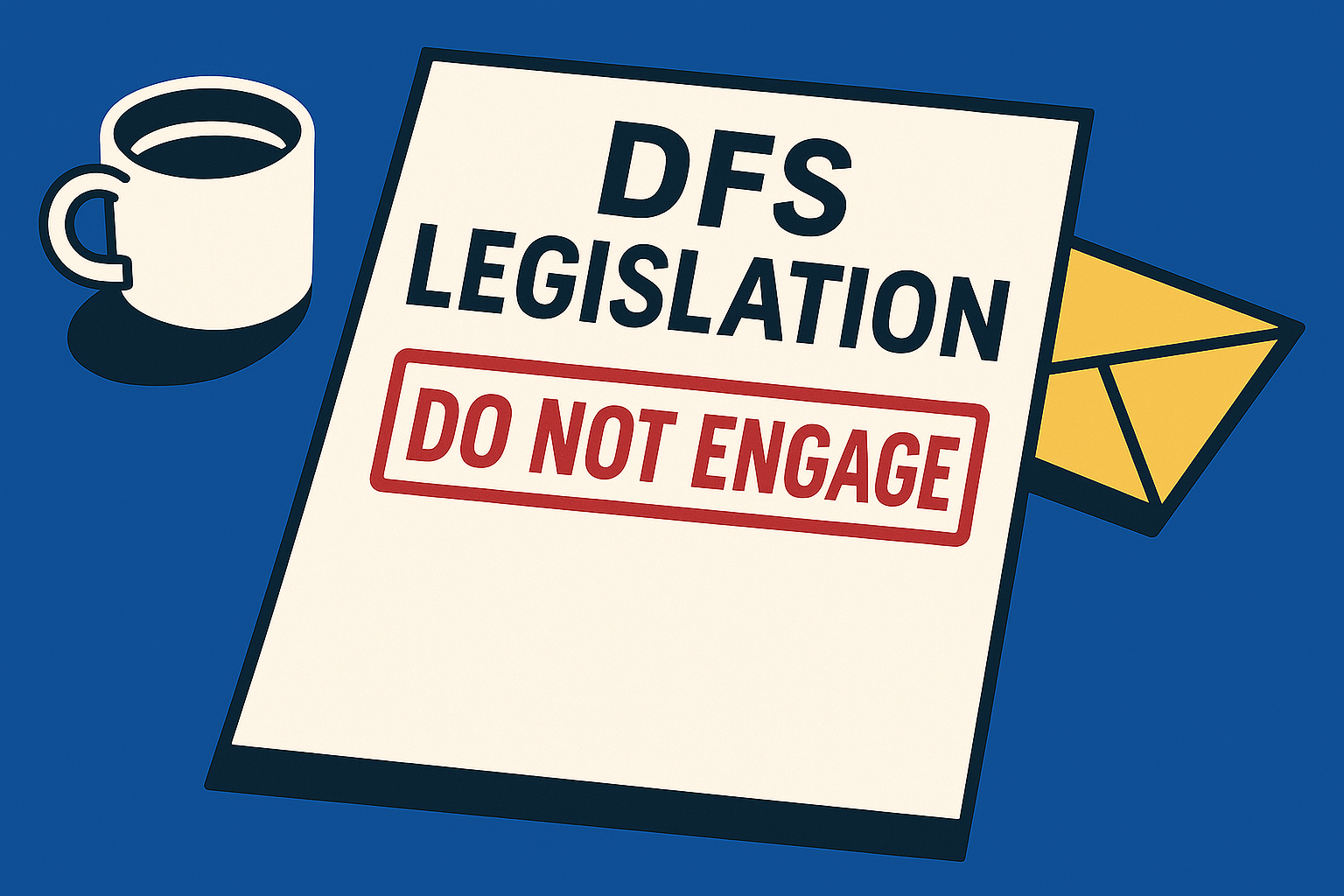As prediction markets inch their way into the sports betting space, sportsbook operators are increasingly pinged with questions about the impact financial exchanges may have on their business.
Operators are pointing to the scant sports offerings – specifically, the lack of parlays – as a major differentiator between the two models. Parlays account for a huge portion of sportsbooks’ profits, and since parlays are not available on exchanges, operators are downplaying both the potential risk and opportunity.
But single-event sports event contracts are just the tip of the iceberg of what financial platforms could eventually offer, according to industry analysts. There is a path for parlays to be added to the mix.
“It [is not] entirely accurate in my view for CEOs to be dismissive of that,” Alfonso Straffon, a former sports trader turned bond trader, told Comped.
What the CEOs are saying
U.S. sportsbook operators are leaning into the lack of parlays as they field questions about prediction markets. (This was also a major topic on the most buzz-worthy panel at SBC Summit Americas 2025 in Fort Lauderdale last week).
“If you look at the products, they’re very nascent one and don’t have any of the bells and whistles,” DraftKings CEO Jason Robbins said last week at MoffettNathanson’s Media, Internet & Communications conference. “They’re very bare bones in terms of markets. Now, that’ll change. But creating things like parlays, for example, this is going to be hard in a format like that. It’s peer to peer.”
Robbins’ “peer to peer” characterization is an oversimplification. Market makers, not peers, are often on the other side of trades made on an exchange, and given the massive profits books are raking in from parlays, market makers will be willing to accept the risk associated with multi-leg bets.
While FanDuel parent Flutter Entertainment believes it is well-position to launch an exchange in the US because Betfair, the world’s largest exchange, is already under its umbrella, CEO Peter Jackson remarked he’s “not that confident that this will have a significant impact” in legal sports betting states.
“We can see how important the parlay mix is to a U.S. audience. And of course, you can’t access that in the same way with something like the exchange,” Jackson said on last week’s earnings call.
On his company’s earnings call, BetMGM CEO Adam Greenblatt said, “Things like the excitement of same-game parlay, the features of a rich sports betting experience that sports betting operators provide, would not be available. There isn’t an equivalent in that type of offering”
Not yet, at least.
‘Technology is already there’
The technology exists for the migration of parlays to financial platforms, according to Straffon.
Parlays, though, won’t exist on an exchange, but rather platforms akin to over-the-counter financial trading.
“If we are going down this path of sport event contracts that trade on an exchange, well, it’s only a matter of time before you could turn the page and have other types of trading happening, away from an exchange, and it’s there that you will be able to have parlays,” Straffon explained. “It would be more like an over-the-counter.”
Here’s how it could work: The multiple legs of a same-game parlay would be routed to market makers that would come back with prices. For a four-leg SGP, for example, you might hear offers or +1000, +1100, and +1300 (likely expressed as percentages, though). The best offer, of course, would be accepted.
“It will come down to regulation at the end of the day,” added Straffon, who submitted public comments to the CFTC in advance of the Prediction Markets Roundtable that was scheduled for last month but ultimately cancelled. “The technology is already there to be able to build out those capabilities. The OTC market is much more flexible and customizable.”
Legislative middle ground?
States are pushing back on prediction markets offering sports event contracts, which are no different from sports bets in most people’s eyes. Six states – Illinois, Montana, Maryland, Nevada, New Jersey and Ohio – have sent cease-and-desist letters to these companies.
Kalshi, a company at the forefront of prediction markets’ foray into sports, won federal court cases in Nevada and New Jersey, as preliminary injunctions were issued against both states.
Sports trading on financial exchanges circumvents regulation and, as importantly, taxation. States are concerned that it’s chipping away at their tax revenue.
Could a compromise between the states and prediction markets lie in the notion that high-margin parlays are sportsbooks’ domain – and thus subject to tax – and it’s acceptable for financial platforms to offer lower-margin straight bets?
That’s one of a myriad of potential paths forward.





